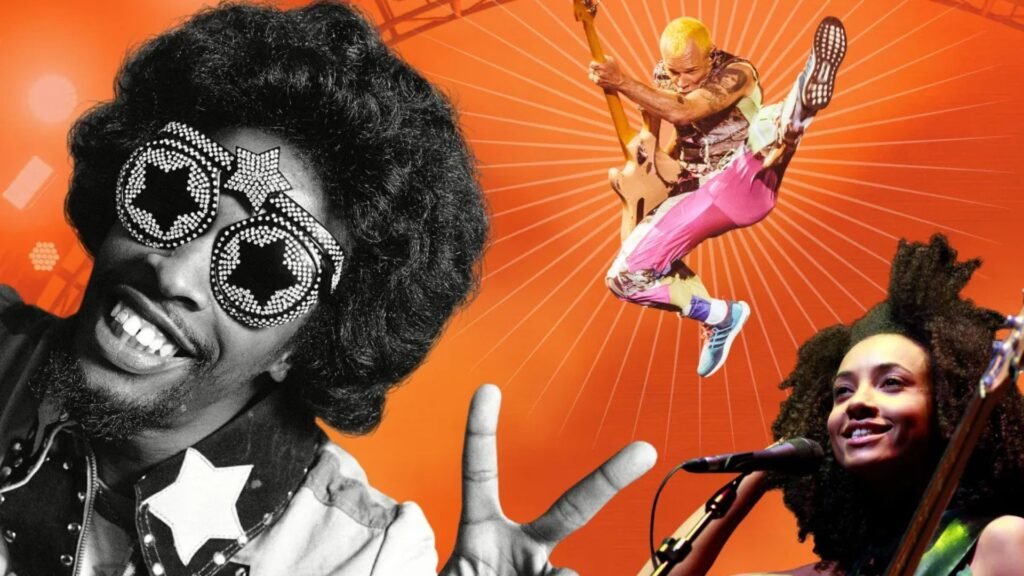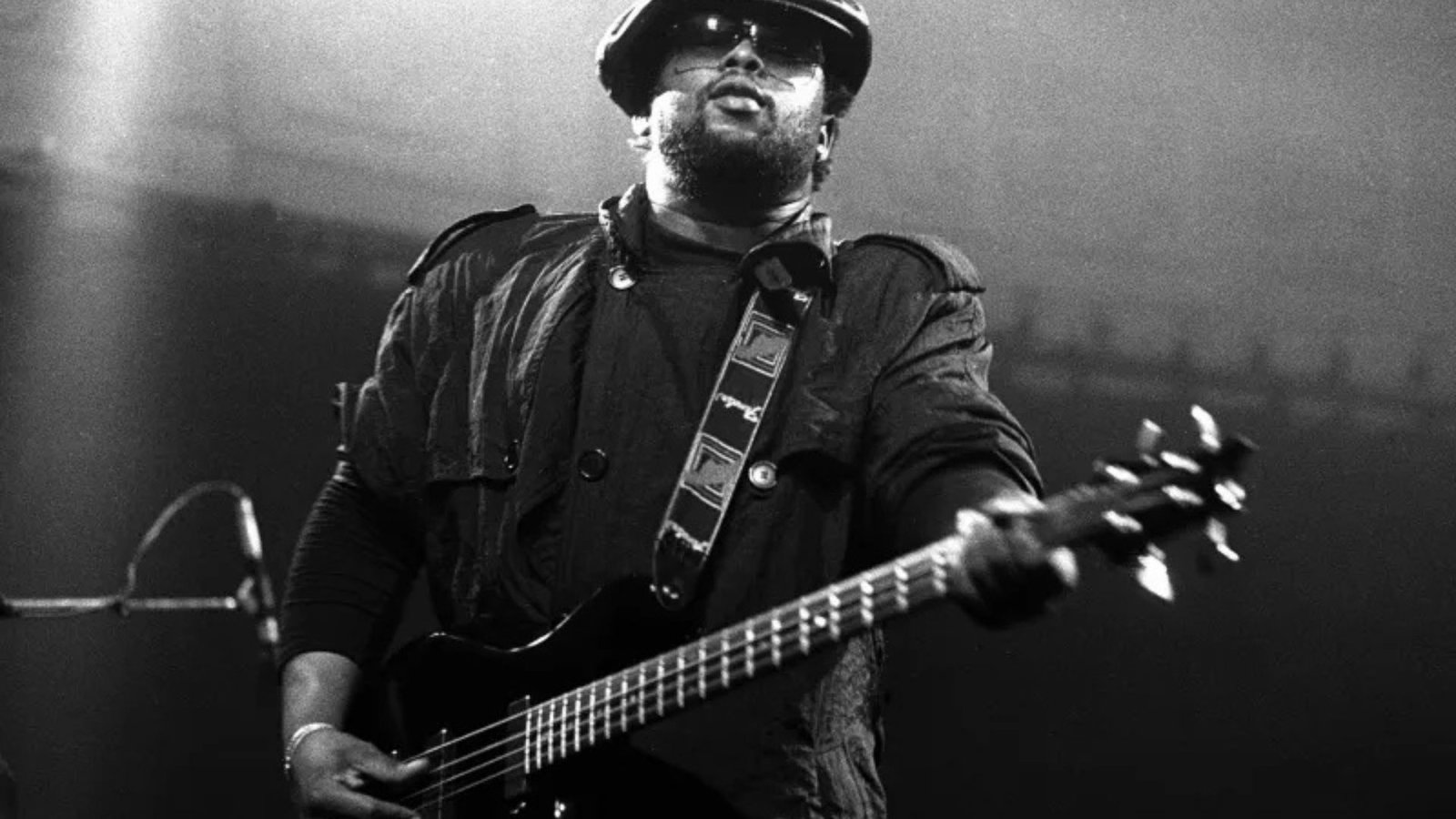The bass guitar is the backbone of any band, providing rhythm, depth, and groove. Over the decades, several bassists have revolutionized music with their unique styles and groundbreaking techniques. In this article, we explore the best bass guitar players of all time, highlighting their influences and the styles that made them legends.

James Jamerson – The Motown Groove Architect
James Jamerson was the heart of Motown’s “Funk Brothers” and a pioneer in bass playing. His melodic, syncopated lines became the foundation of countless Motown hits, such as Marvin Gaye’s “What’s Going On” and The Supremes’ “You Can’t Hurry Love.”
Influences
- Gospel and jazz deeply shaped Jamerson’s playing style.
- He often cited jazz bassist Ray Brown as a major influence.
Style and Legacy
- Jamerson’s use of chromatic runs and syncopation redefined bass as a melodic instrument.
- His “one-finger” plucking technique, known as the “Hook,” became iconic.
Jaco Pastorius – The Virtuoso Innovator
Jaco Pastorius transformed the electric bass into a lead instrument, introducing innovative techniques like harmonics and fretless bass playing. His work with Weather Report and solo compositions like “Portrait of Tracy” showcased his unparalleled skill.
Influences
- Jazz legends like Charles Mingus and Ornette Coleman inspired his approach.
- He also drew from classical and world music.
Style and Legacy
- Jaco’s fretless bass playing brought a singing quality to his sound.
- He expanded the possibilities of bass, inspiring generations of jazz and fusion players.
Carol Kaye – The Studio Powerhouse
Carol Kaye is one of the most prolific session bassists in history, contributing to over 10,000 recordings. Her work with The Beach Boys, Simon & Garfunkel, and Quincy Jones has left an indelible mark on popular music.
Influences
- Kaye was originally a jazz guitarist before transitioning to bass.
- She admired bebop musicians like Charlie Parker.
Style and Legacy
- Her pick-style playing and rhythmic precision set her apart.
- She elevated the role of the bassist in studio recordings, making the instrument indispensable.
Flea – The Funk-Rock Trailblazer
Flea of the Red Hot Chili Peppers brought slap bass to the mainstream, blending funk, rock, and punk into a high-energy style. His performances are as much about stage presence as musicality.
Influences
- Flea credits funk legends like Bootsy Collins and Larry Graham for shaping his sound.
- Punk bands like The Clash also influenced his raw energy.
Style and Legacy
- Flea’s slap-and-pop technique became his signature.
- His contributions to songs like “Give It Away” and “Under the Bridge” showcase his versatility.
Geddy Lee – The Progressive Rock Icon
As the bassist and vocalist of Rush, Geddy Lee balanced technical proficiency with creative songwriting. His intricate basslines in tracks like “Tom Sawyer” and “YYZ” redefined what progressive rock bass could be.
Influences
- Lee drew inspiration from Jack Bruce of Cream and John Entwistle of The Who.
- Jazz fusion also played a significant role in shaping his sound.
Style and Legacy
- His ability to play bass, sing, and control keyboards simultaneously is legendary.
- Lee’s complex compositions influenced countless progressive rock and metal bassists.
Bootsy Collins – The Funk Pioneer
Bootsy Collins brought unparalleled groove and charisma to the bass, playing with James Brown and later with Parliament-Funkadelic. His flamboyant style and deep grooves defined funk music.
Influences
- James Brown’s disciplined approach to rhythm shaped his playing.
- He also admired jazz and blues musicians.
Style and Legacy
- Collins’ use of effects pedals and playful stage persona made him a funk icon.
- His work on tracks like “Flash Light” and “Give Up the Funk” remains influential.
Victor Wooten – The Modern Master
Victor Wooten is a contemporary bass virtuoso known for his solo work and performances with Béla Fleck and the Flecktones. His technical prowess and musicality have earned him widespread acclaim.
Influences
- Wooten credits his family of musicians for his early education.
- Bassists like Jaco Pastorius and Stanley Clarke shaped his style.
Style and Legacy
- Wooten’s mastery of double thumbing, tapping, and harmonics sets him apart.
- His book The Music Lesson has inspired musicians worldwide.
Conclusion
These bass guitar players have shaped music history through their unique influences and styles. From the Motown grooves of James Jamerson to the innovative techniques of Jaco Pastorius, each bassist has left a lasting impact. Their dedication to their craft and willingness to push boundaries serve as inspiration for musicians everywhere. Aspiring bassists can learn a great deal by studying their techniques, understanding their influences, and embracing their innovative spirit.











